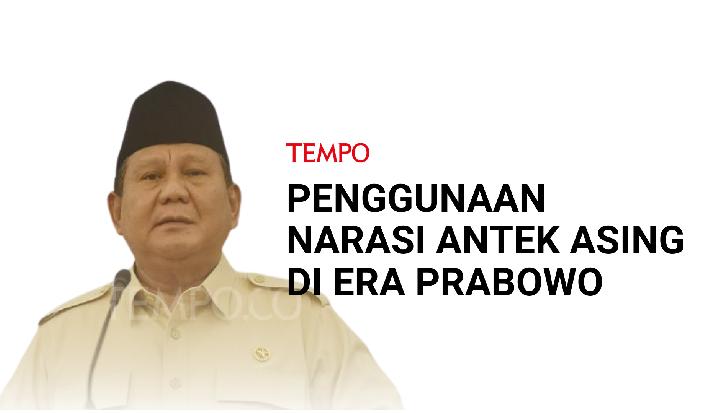Baca berita dengan sedikit iklan, klik di sini
TEMPO.CO, Jakarta -
Baca berita dengan sedikit iklan, klik di sini
Dear Readers,
Baca berita dengan sedikit iklan, klik di sini
Baca berita dengan sedikit iklan, klik di sini

Like a soap opera or a Netflix movie, intervention can have several episodes. Binge watching soap operas or movies can be fun because the stories make people want to know what happens next. But Jokowi’s interventions can endanger democracy. After the ‘success’ of helping his oldest son become vice president, now he wants his youngest son to be deputy governor of Jakarta.
The strategy is similar. Gibran Rakabuming Raka was able to run for the vice-presidency after his uncle, who headed the Constitutional Court, changed the provision in the Election Law concerning the minimum age requirement. Now Kaesang Pangarep, the youngest son, will be able to enter the Jakarta regional head election on November 27 because the Supreme Court has revised the age limits in the relevant General Election Commission regulation.
Previously, the minimum age to become a candidate for a regional head was 30. The Supreme Court changed it to a minimum of 30 at the time of inauguration. This means there is no age limit at the time of candidacy. Kaesang will turn 30 on December 25. So, if he wins, he will not be hindered by this rule because the inauguration of the governor and deputy governor will be next year.
Who is the gubernatorial candidate that Jokowi is supporting? Ridwan Kamil, who is now a member of the Golkar Party. This has caused problems within Golkar because the party wants Ridwan to run again for governor of West Java. The Gerindra Party supports the idea of Ridwan moving to Jakarta because that party is supporting Dedi Mulyadi, former regent of Purwakarta, who used to be a Golkar man.
There is only one obstacle: once again, it is Anies Baswedan, who is the most popular candidate in Jakarta. Therefore, the presidential election strategy might be repeated in Jakarta.
The question is, why do leaders of the party in the Indonesia Onward Coalition—Prabowo Subianto’s supporting party coalition—just comply with Jokowi’s desires? His presidential term will end on October 20. After that, he will have no means to ‘strike’ political opponents or restraining allies that do not go along with him, because he does not have a party. Prabowo Subianto and Susilo Bambang Yudhoyono, both former army generals, are also pandering to Jokowi’s desire to stay in power.
The explanation for their stance could refer to the practice of political cartels that have characterized the party system since the 1998 Reformasi. Parties are owned by individuals, not by a system based on democracy. As a result, parties are prone to being steered for vested interests.
The fact that parties are characterized by cartel politics was explained by Gadjah Mada University political scientist Kuskridho Ambardi in his 2009 book Uncovering Political Cartels. The question is, why do these cartels obey Jokowi, who has no party?
Perhaps it is because of the mutually beneficial relationship between Jokowi and the owners of these parties. Ultimately, they enjoy state resources that Jokowi provides to remain in power.
In this week’s edition, we discuss the details of Jokowi’s intervention and how the coalition is heating up as a result of the plan to pair Ridwan Kamil and Kaesang Pangarep. Happy reading.
Bagja Hidayat
Deputy Chief Editor
Palace Influence in the Jakarta Regional Head Election
Jokowi allegedly tries to thwart Anies Baswedan’s candidacy in the Jakarta gubernatorial election. There are efforts to include Kaesang in the 2024 regional head elections.
The Battle againts the Palace
The PDI-P is quietly planning to support Anies Baswedan in the Jakarta gubernatorial election. Other political parties are wavering in their support.
Law
More Suspects in the Railway Corruption Case
The investigation into the railway corruption case has yet to implicate high-ranking officials of the Transportation Ministry. The case ran aground at the hands of KPK investigators.
Economy
Behind Muhammadiyah Fund Withdrawal from Bank Syariah Indonesia
Muhammadiyah withdrew trillions of rupiah from Bank Syariah Indonesia. It was the accumulation of various problems, from operational matters to appointment of commissioners.
Interview
BP Tapera Commissioner Explains the Controversial Income cut for Housing Savings
BP Tapera Commissioner, Heru Pudyo Nugroho, explains the compulsory 3 percent cut of monthly income for the public housing savings scheme.
Read in Tempo Magazine:
















